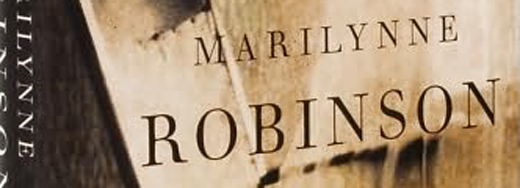
¶ In La Rochefoucauld, some sound advice that, for a change, is neither cynical nor depressing.
La félicité est dans le goût et non pas dans les choses; et c’est par avoir ce qu’on aime qu’on est heureux, et non par avoir ce que les autres trouvent aimable.
Happiness is rooted in taste, not in things; and having things that we like is what makes us happy, not having things that others like.
From this I draw the consoling thought that, while youth may be wasted on the young, who are so easily driven to distraction by wanting whatever it is that their friends want, happiness is not, because it is altogether unknown to them.
¶ Lord Chesterfield writes about history, perhaps too modestly suggesting that the “great man” school of thought ought rather to be re-imagined as one of the “highly placed ordinary man.”
Were most historical events traced up to their true causes, I fear we should not find them much more noble, nor disinterested, than Luther’s disappointed avarice; and therefore I look with some contempt upon those refining and sagacious historians, who ascribe all, even the most common events, to some deep political cause; whereas mankind is made up of inconsistencies, and no man acts invariably up to his predominant character.
About the impossibility of truly objective historical accounting, Chesterfield offers this pithy mot:
A man who has been concerned in a transaction, will not write it fairly; and a man who has not, cannot.
¶ In Moby-Dick, the Pequod encounters a school of whales, but perhaps too closely. Throughout the terrifying encounter, Ishmael never rues the day that he came aboard.
A short rushing sound leaped out of the boat; it was the darted iron of Queequeg. Then all in one welded commotion came an invisible push from astern, while forward the boat seemed striking on a ledge; the sail collapsed and exploded; a gush of scalding vapor shot up near by; something rolled and tumbled like an earthquake beneath us. The whole crew were half suffocated as they were tossed helter-skelter into the white curdling cream of the squall. Squall, whale, and harpoon had all blended together; and the whale, merely grazed by the iron, escaped.
¶ Finishing the Squillions chapter on the Phoney War, which saw Coward, for the most part, in a smart apartment in the Place Vendôme maintaining a ready alert to receive such crumbs of useful intelligence that might come his way in the beau monde. On the evidence, versifying seems to have offered some relief for anxious but idle minds. We’re told that Coward delighted in re-reading these ditties in later years. One of them, “With All Best Wishes For a Merry Christmas 1939,” is strong and bitter, with iron remininiscences of tolling bells, about what we now call “organized religion.” The last six lines:
Now as our day of rejoicing begins
(Never mind Poland — Abandon the Finns)
Lift up your voices “Long Live Christianity!”
(Cruelty, sadism, blood and insanity)
So that the Word across carnage is hurled
God’s in his heaven, all’s right with the world!
There is also this elegant passage from a letter to Jack Wilson, who wanted Coward to come to New York and get back into the theatre:
You can tell them for me that my life is unheroic in the extreme. I have a comfortable flat and a comfortable office (when the heat’s on). Compared with what many English actors are doing, who have far more to lose than I, I am on velvet. I fully realize that several thousand miles of ocean between America and Europe make it difficult for people over there to understand what we are feeling over here. I am sure they occasionally read the press notices of this particular production, but we all know how unreliable critics can be. This play hasn’t been very well directed so far and the first act, according to many, is too long and rather dull. I am afraid however that I cannot walk out on it. Please give them my love, show them this letter; thank them for thinking so well of my talent and reproach them, affectionately, for thinking so poorly of my character.


















